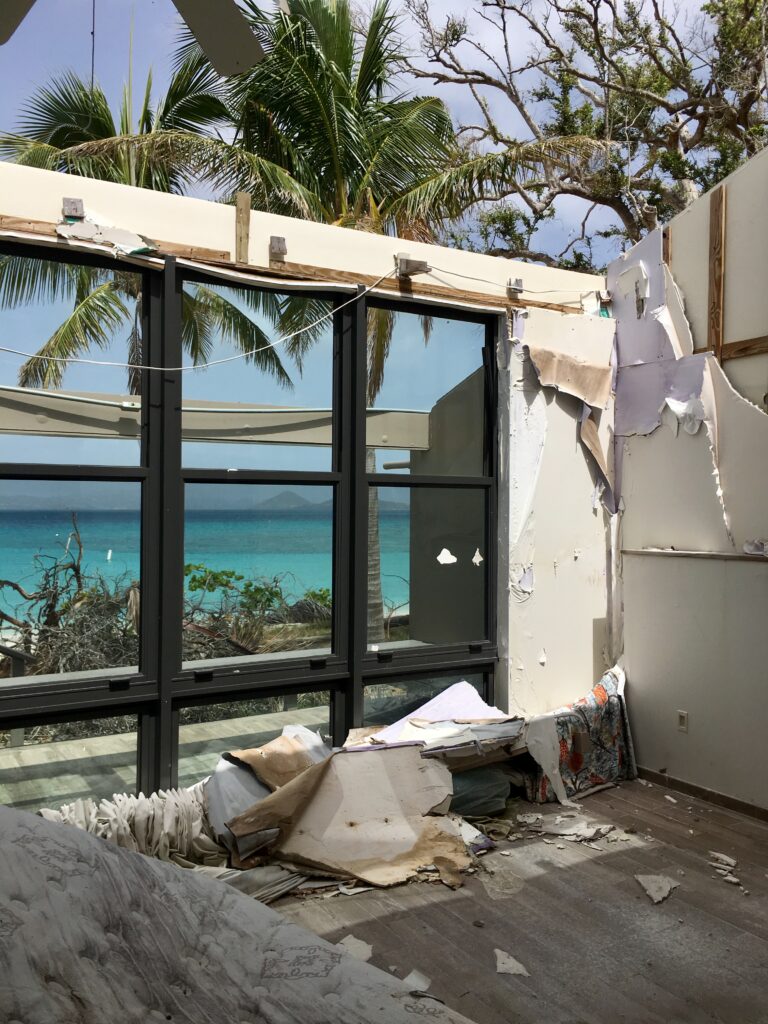
In a court filing Tuesday, EHI Acquisitions asked a federal judge to reject the government’s motion to dismiss its lawsuit seeking to be declared the owner of the 150-acre Caneel Bay Resort property on St. John.
The lawsuit — filed June 30 in V.I. District Court by EHI, a subsidiary of CBI Acquisitions — asks the court to declare that the Interior Department has no legal claim to the property after it rejected CBI and EHI’s offer to transfer title to the resort’s buildings and other improvements to the U.S. government for $70 million in 2019.
The U.S. Attorney’s Office subsequently filed a motion in September asking the court to dismiss the suit because it does not include CBI, “a necessary and indispensable party” with a legal interest in the property.
In a 17-page response on Tuesday EHI’s attorney, Chad Messier of Dudley Newman Feurzeig, said CBI is not a necessary party but if the court finds that it is, it could order that CBI join the suit, rather than dismiss the case.
The lawsuit is the latest in a legal battle over the future of the once-tony resort that has been shuttered since it was badly damaged in the twin Category 5 hurricanes of September 2017.
Laurance S. Rockefeller in 1956 donated the land that today makes up Virgin Islands National Park but held back roughly 150 acres for Caneel Bay Resort. In 1983, Jackson Hole Preserve, a Rockefeller entity, donated the land to the park. However, it came with a Retained Use Estate agreement that gave the Preserve free use of the property and its facilities for 40 years. At the end of that four-decade period, September 2023, the RUE document dictated that the buildings and their improvements be donated to the Park Service.
While the Preserve initially held the RUE, it was passed down to other companies, and finally to CBI in 2004.
CBI principal Gary Engle has maintained that it would cost $100 million to restore the hurricane-damaged property and sought to extend the RUE for 60 years to recoup such an investment. When that effort failed, EHI and CBI offered to terminate the RUE and sell the resort to the government for $70 million on the condition that EHI and CBI be released from all environmental liabilities related to the RUE and Caneel Bay land and improvements.
Engle asserted that if the government rejected the offer to buy the property, then the title to the premises would revert automatically to EHI, per the RUE agreement. However, Interior Department Solicitor Daniel Jorjani rejected that claim, writing in a June 2019 response that the agreement did not authorize demands for payment, indemnification, or releases as a condition of the RUE termination.
EHI has maintained that resolving the ownership issue is essential to its ability to raise the funds necessary to quickly rebuild the resort. In a press release announcing the suit in June, Caneel Bay director of marketing Patrick Kidd said that EHI planned to create a charitable trust for the benefit of the people of St. John and the U.S. Virgin Islands and donate the resort property to the trust.
“Once EHI gets the resort reopened, lease payments from the Resort operator will provide funds to the trust for local schools, affordable and workforce housing, and environmental preservation. At the end of the lease term, the Resort will be owned and controlled by the trust for the benefit of the people of St. John and the Virgin Islands community,” the press release stated.
However, U.S. Attorney Delia Smith noted in her September motion to dismiss EHI’s suit seeking to quiet title to the land that “Plaintiff does not state how much insurance monies it received for the hurricane damage to the resort, nor why those monies could not be used to rebuild the resort.”
Additionally, “Plaintiff did not allege how it determined that the hurricane-damaged resort, which it stated would cost $100 million to rebuild, is valued at $70 million,” the motion stated.
Smith also said that although the offer to transfer title to the buildings and other improvements to the government was made by both EHI and CBI, “Plaintiff alleges that title reverted solely” to EHI.
The lawsuit’s failure to include CBI Acquisitions is grounds for dismissal, or for the court to order that the absent party be joined in the action, Smith stated in her motion.
However, in its response Tuesday, EHI asserts that “it is undisputed that CBI does not claim title to the land,” and that the RUE, the improvements, and the leasehold are property interests that are distinct and separate from title to the land. Tuesday’s filings also included a declaration by Engle that CBI claims no interest in title to the land.
Moreover, the motion claims that EHI, not CBI, is the owner of the RUE and that it owns all interests in the improvements, per an indenture filed with the territory’s Recorder of Deeds in 2003.
However, even if that were not the case, “title to the land can change hands without affecting interests in the Retained Use Estate, the Improvements, or the leasehold — much less would it extinguish those interests,” EHI’s motion states.
“As a result, the Court can accord complete relief in this action by quieting title to the land, without joining CBI and without affecting CBI’s interest,” according to the motion.
“The United States failed to meet its burden of proving that CBI is a necessary party. In addition, the United States failed to prove that if CBI were a necessary party, that it would not be feasible to join CBI as a party. The United States’s motion therefore fails as a matter of law and should be denied,” the motion states.





